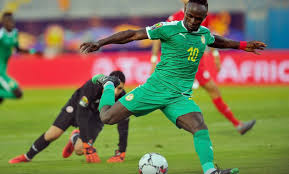The Ugandan health officer bet $1,800 that had been granted to him by the authorities as compensation for 243 persons who had taken part in a polio vaccine campaign because he was so confident that Argentina would defeat Saudi Arabia in their World Cup soccer match.
The official was in trouble when Argentina lost. According to his boss, he was afterward pursued by an irate mob; spent days confined inside; and now faces repercussions, including the potential loss of his job.
Gamblers and experts indicated that many people in at least five African nations view the expanding sports betting market as a reliable source of income and a potential route out of poverty. Critics caution that widespread poverty, unemployment, and weak or nonexistent regulation support sports betting in Africa.
Sports gamblers in Uganda, an East African nation with an annual per capita income of $840 in 2020, include students, politicians, night watchmen, and civil servants like the unfortunate health officer who is now being forced to refund the money he doesn’t have.
“First, he claimed that he had borrowed money and that the money had been stolen. However, I could tell he was lying, so I kept pressing him for further details. I have to tell you the truth, doctor: He sobbed and murmured, breaking down. The district of Zombo’s top health official, Mark Bramali, declared, “I staked the farm in Argentina.”
Sports betting data for the entire continent is not easily accessible, but statistics from several nations suggest that it is becoming more and more popular. Due to the widespread use of mobile payments and the increased demand for digital entertainment during the epidemic, online gaming platforms have seen rapid development. The majority of the betting is on European soccer matches.
The most recent gambling survey, conducted by the South African government, was conducted in 2017, and it revealed that sports betting increased by 14% per year between 2008 and 2016 despite a decline in overall gambling from 57% to 33% of the adult population.
According to the National Gambling Board, online sports betting now accounts for 45% of the South African gambling market, which is “a sharp contrast to just 10 years ago when casinos held 80% of market share.”
In the wake of pandemic-related lockdowns, according to Sibongile Simelane-Quntana, executive director of the South African Responsible Gambling Foundation, there has been “substantial growth” in online sports betting. Her organization receives funding from casinos, which “has climbed by 50% from where it was before the lockdown.” She said.
One Fortebet shop in Kampala, the capital of Uganda, is frequently crowded with gamblers, some of whom sit down with a pen and paper and mark off the games that go their way all day. In order to receive a portion of online “betting points,” participants in a World Cup promotion are encouraged to wager at least $0.8 each day up until the final, according to manager David Mugisa.
Sales are increasing every day, especially during the World Cup, thanks to demand from the urban poor, such as students, casual workers, and others.
Gamblers came in to claim winnings without verifying the outcome after Argentina’s defeat to Saudi Arabia, according to Mugisa, because it was so unexpected. He replied, “That game wrecked devastation.
Sports betting “has become a big money maker even for individuals who are in formal job” in Zimbabwe, where the majority of people in formal employment make less than $100 per month, according to Japhet Moyo, secretary-general of the Zimbabwe Congress of Trade Unions. The issue is that it can become addictive, and some people lose their jobs as a result of gambling.
Shocking World Cup outcomes there, as well as everywhere in Africa, were painful. After England defeated Senegal to advance to the finals on December 4, many patrons in one betting establishment in the Zimbabwean capital of Harare appeared dejected and trashed their tickets before leaving the establishment.
Gamblers in Africa frequently use their winnings to cover daily expenses. An anxious Philo Ragada, a jobless Harare teacher, watched Senegal compete against England to advance to the quarterfinals. The Zimbabwean claimed that although he backed the African side, “that’s where my money is,” thus he wanted England to triumph. He said that he would have “enough for tomorrow’s bread and tomatoes” with his wins.
Wale Babalola, a college graduate in Lagos, Nigeria, who now runs eight betting shops after previously finding it difficult to get employment, said, “In Nigeria of today, you just have to find a way of survival.” “I worry how some individuals can survive in our country if not for gambling.”
Moses Ssali, a frequent bettor in Kampala, claimed that despite the World Cup losses, he still believes in betting as a source of income. He said he built the modest three-bedroom house “little, small” out of winnings over the years, putting down a deposit on cement and sand one day. He is currently searching for a significant victory that will pay for roofing sheets beyond the World Cup.
The level of worry regarding the sector is also rising. According to Reagan Wamajji, a researcher and analyst with the Uganda-based Center for Policy Analysis, the expansion of sports betting in Africa “threatens to drag young men and women into its lethal depths.”
Like what is happening in the tobacco sector, he continued, there must be intentional campaigns against gambling, especially sports betting. However, because the industry is so profitable, it may be difficult to advocate for significant improvements.
Akin Alabi, a Nigerian legislator and the creator of the well-known betting site Nairabet stated the issue is caused by a small group of predatory “charlatans.”
Alabi said of sports betting, “We can only have problems when it is not effectively regulated.
Earlier this year, a legislative committee in Uganda proposed outlawing daytime gambling.
Neighboring Kenya reported that from 2019 they taxed all bets, whether they won or lost, and revoked the licenses of many significant gambling firms after charging the nation’s largest sports betting platform with tax evasion, Kenya has seen a fall in gambling. According to a government poll, the percentage of respondents who considered gambling to be a good source of income decreased from 22.7% to 11.2% between 2019 and 2021.
This World Cup has been harsh for habitual gamblers, especially those who wager money that isn’t their own.
The nightwatchman in Kampala, Gideon Matua, who frequently places bets, claimed that two of his pals had lost their jobs as a result of misusing other people’s money. The first, who was instructed to put money into his employer’s account, lost the money in a casino, and the second, who was given money to pay for energy at home, stole it. Since then, he claimed, both guys have lost their guarding positions.
I’ve seen a lot of people crying here, he remarked. Someone pays a lot of money to one team here. They simply leave if the team loses. Some of them have lost their jobs as a result.
In Kampala, Ssali had a stern tone.
In reference to betting on World Cup games, he said, “They beat me, and I’m feeling cold.” “However, I am aware that you cannot get anything if you don’t put anything in. Even when you court a woman, you have to spend money, but she might let you down, isn’t that right? A store can open and fail.




















